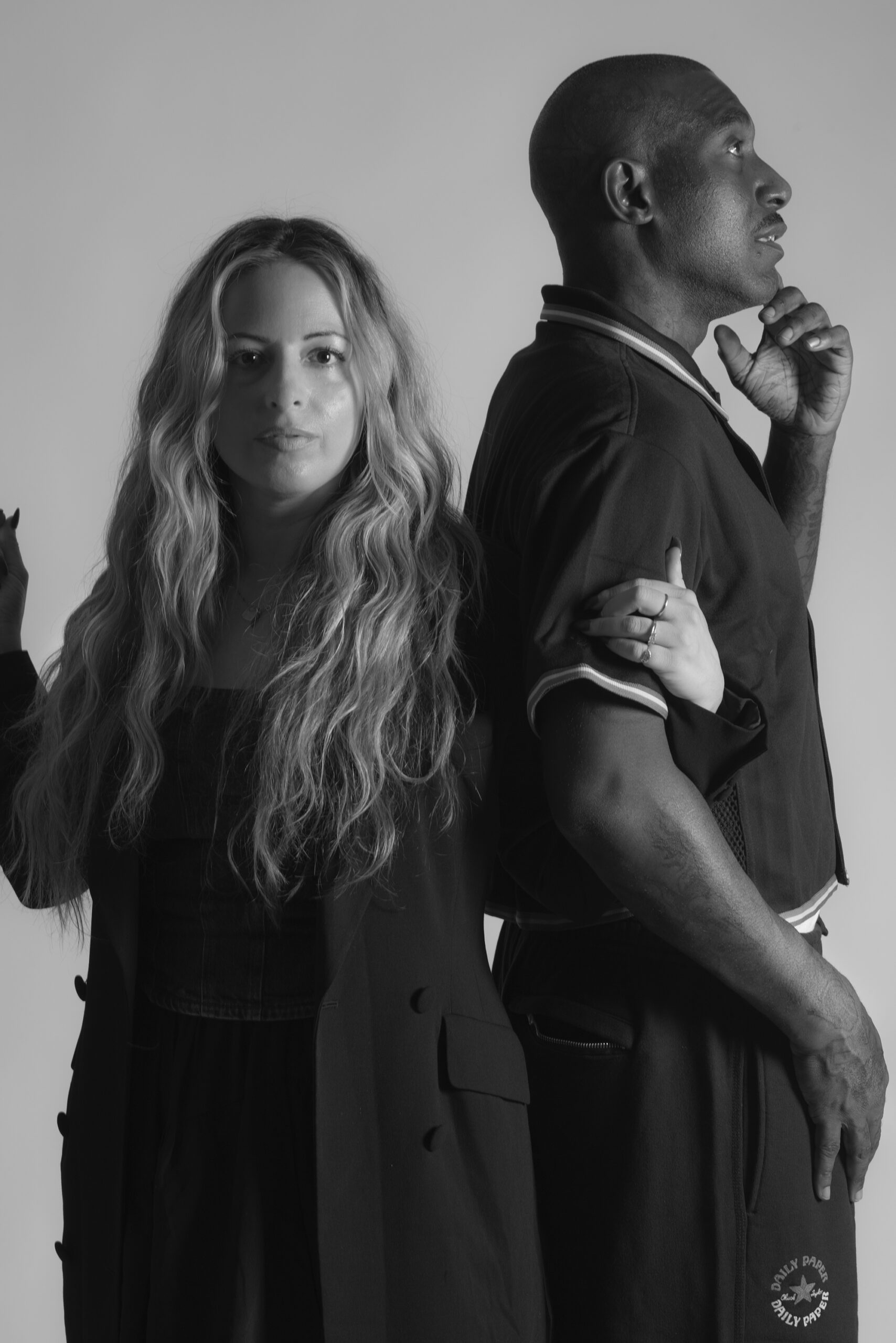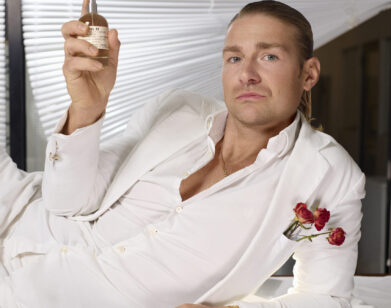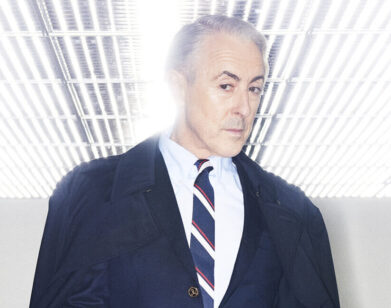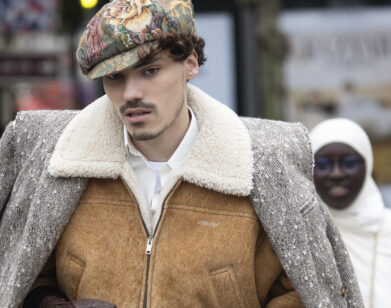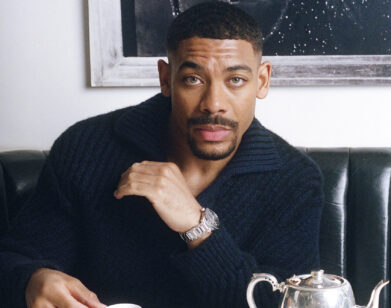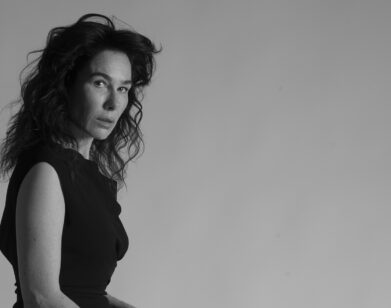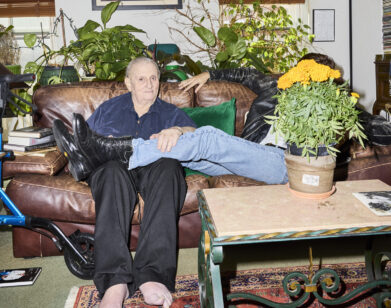PORTFOLIO
How Crystal Moselle and Derrick B. Harden Created the Most Punk Movie of the Year
In an era when Hollywood retreads and corporate trends have become the backbone of blockbuster filmmaking, a crop of up-and-coming directors, unburdened by an adherence to Hollywood’s established norms and conventions, are approaching their movies with fresh, uninhibited perspectives. of ignorance in the face of industry conventions. Their work spans traditional genres, from coming-of-age comedies to sports biopics to prestige adaptations. Budgets range from streamer-funded to scraped-together. And while all of this results in different styles of filmmaking, their commonalities are much more salient. To find out why, we asked Eugene Kotlyarenko, filmmaker and host of the Director’s Commentary podcast, to speak with six early-career directors with big dreams and bigger ambitions. In the first of five installments, he talked to Crystal Moselle and Derrick B. Harden, co-directors of The Black Sea. The film is a unique and heartwarming improv comedy about a Brooklyn native who gets stranded in Bulgaria and must figure out ways to survive and thrive.
———
EUGENE KOTLYARENKO: The great Derrick Harden and the great Crystal Moselle.
CRYSTAL MOSELLE: Derrick B. Harden.
KOTLYARENKO: Oh, what does the B stand for, Derrick?
DERRICK B. HARDEN: The B is for Bernard.
KOTLYARENKO: Oh, Bernard? It’s not like one of those made up things where you’re like, “B” as in “I am,” or like to become hardened?
MOSELLE: I’m the one with the made up name.
KOTLYARENKO: What’s your real name?
MOSELLE: Sierra. But when I was five, I changed it.
KOTLYARENKO: To a different a new-age hippie name!? Sierra. It’s not like you went from, I don’t know, Eleanor to Crystal. No hate on Eleanors out there.
HARDEN: No, no, no. We love Eleanor.
MOSELLE: I wanted to change it because the first letter of the name was S, and I didn’t like being towards the back of the class. And C was not the very front, but closer to the front.
KOTLYARENKO: I see. A director already manipulating reality in grade school. And Derrick, your last name is a verb, to harden. Do you think that had some influence on you?
MOSELLE: Eugene, we both have stripper/porn star names.
HARDEN: That’s a good place to start.
KOTLYARENKO: Right, so where did the idea for The Black Sea come from?
MOSELLE: We had an idea that we were going to shoot, I think in…
HARDEN: In Palm Springs. About this guy on the run in witness protection but he becomes popular within the church. And goes viral through the church’s feed on Instagram or Facebook.
MOSELLE: And then Derrick one day woke up and he’s like, “You know what? I think we should do this in Bulgaria.” I was like, “I don’t know about that. That sounds strange. I’m not sure if it’ll work there.”
KOTLYARENKO: Witness protection guy going viral in Bulgaria—that might not work.
MOSELLE: But I always trust Derrick’s intuitions, so then we just went to Bulgaria. We don’t even really have the new idea yet completely.
KOTLYARENKO: You guys had never been to Bulgaria before?
HARDEN: We had been in December prior.
MOSELLE: And Derrick had an idea that he wanted to be a star there.
HARDEN: Yeah, I wanted to do regular Bulgarian television when I first got to Bulgaria.
KOTLYARENKO: Meaning what?
HARDEN: I was like, “Oh, I should be on television here.” And just figure out my life finances from this point.
KOTLYARENKO: Because you liked it there?
HARDEN: I love it there. I had an idea, it was a Will Smith-style approach to Bulgarian parents. I was the son of a drug kingpin who got murdered by the cops, so I was up for adoption, and these new-age Bulgarian parents were new immigrants to the U.S. So the system said, “Look, you can get a nice project apartment if you take this kid.” So they go back to Bulgaria with him every summer.
MOSELLE: But then, once we got to Bulgaria the next summer to make a movie, we were thinking, this idea was too crazy. I think we were trying to simplify it and thought, “We just have to get you stuck in Bulgaria.”
HARDEN: So I said, “What if one of these Bulgarian ladies visits a fortune-teller and they’re like, ‘Listen, you’re not going to make it. There’s only one thing you can do.’ ‘What is it?’ ‘If you find a Black man to touch you, he can heal you.’” But there’s no Black folks in Bulgaria. So now this lady’s mission is actually mad hard.
KOTLYARENKO: Right, you have to import one via Facebook. Enter Khalid, played by Derrick B. Harden. Let’s get this on the record so everybody can understand. Sometimes people talk about improvised movies, but you guys got to Bulgaria and were like, “We’re not exactly sure what we’re doing, but we’re not going to leave here without having made a movie.” Is that correct?
HARDEN: That is 1000 percent correct.
KOTLYARENKO: That is extremely punk. That has a rap mixtape energy to it, like, “Let’s get into the studio at night, and when we walk out at sunrise, we’re going to have the mixtape.”
HARDEN: And you know what? Shout out to Crystal’s long-time working mate, Izabella Tzenkova. Because without this person on the mixtape, like you said, it wouldn’t be as nicely threaded as it is. She’s Bulgarian, actually.
MOSELLE: Yes. It wouldn’t have worked. She knows the whole town.
KOTLYARENKO: For sure. You need a producer that can be the local fixer when you’re shooting something like this and don’t have a full grasp of the place.
MOSELLE: Absolutely.
KOTLYARENKO: How much time did you spend before you jumped into shooting? Did you guys observe and write for a week or two?
HARDEN: About two and a half weeks.
MOSELLE: The main thing is that the story’s very simple. It’s a guy who gets stuck somewhere and makes the best out of the situation. And Derrick, wherever he goes, does this anyways.
KOTLYARENKO: Gets stuck or makes the best of the situation?
MOSELLE: He connects with local people and creates his own world there. So we came up with the idea that he was going to start this cafe and he had to have these conflicts that were in the way for him to be able to do that. So we had to create those.
HARDEN: Everyday during the shoot we would try to do this magical thing, the actual art of storytelling. That’s what improvisation really lands on. It’s the ability to continuously tell a story.
MOSELLE: And meeting people, creating new relationships that would weave in, and then we would pay it off later.
KOTLYARENKO: So you guys have already started shooting and you’re still figuring stuff out?
HARDEN: By August 17th, we started shooting, and that was a week before our primary DP was there.
MOSELLE: Every day, we were working on the outline, changing it, fixing it, trying to find the locations.
KOTLYARENKO: This is like when you’re a small child and you watch a movie, and you think, “They must just be making it up as they go.” And then you become an adult, and you’re like, “Oh my god, this is an industrial machine with so many layers and steps, and it takes years to put this together, and all these people giving notes on scripts and the casting process takes forever, and you have to raise money and get a whole team together.” And then you guys were like, “We’re going to show up. We are the movie, basically. This location is the movie. The people who are naturally here are the movie. We don’t have any money. We’ll find it as we go. And we better fucking finish this before summer’s over, because once the summer’s over, the story’s over.”
MOSELLE: Yeah.
KOTLYARENKO: That’s inspiring. I think if I was a person reading this, I’d be like, “Holy shit, you can make a movie like that?” Obviously, there’s a lot of risk involved besides just coming up with a bad movie, looking stupid, and losing whatever money you do gather.
MOSELLE: I never think about risk. I never think about anything going bad. I always know it’s going to go great. As long as Derrick just did what he always does in his life, he comes up with great ideas, funny shit all the time. Everywhere we go, he comes up with a movie. This was his first time directing a feature, so it was really fun.
HARDEN: Yeah. My main phrase on set is “Please have fun.” The main thing before we start bugging out on timelines, and deadlines, and finances, we must have fun.”
MOSELLE: He’s like, “Stop being so serious.”
HARDEN: We have one life. Some of us will walk away from this and get hit by a bus.
MOSELLE: It’s the most fun I’ve ever had and the most relaxed situation I’ve ever been in. There’s so many times where Derrick would have ideas that were so out of the box, and, normally, I’d say, “I don’t think we can do that because of this…” But he’d always say, “Why not?” And then I’d be like, “Yeah, you’re right. Why not? Why are we holding ourselves to all these rules?” So it was a really uplifting experience for me.
KOTLYARENKO: That’s the privilege, I guess, of a first-time director.
HARDEN: Yeah, I was going to say.
KOTLYARENKO: How did you guys break up the directing duties? Crystal, you were focusing on technical things, Derrick’s focusing on the acting with the other actors, or was it just more enmeshed?
HARDEN: It was very free-flowing.
MOSELLE: I had been doing these improv classes for Simone Films and was really getting into it, and I was like, “Derrick, we can make a whole movie like this,” and he was like, “That’s what I’ve been telling you.” And so a lot of these scenes were like, “Okay, what are the conflicting wants we’re giving our characters?” But then he would come in and just set it up weird. He’d find some girl off the street and set her in between him and Ina, and they’re arguing over this girl who has no idea what is happening in the scene. Or the women that we found, who he ends up in bed with. We just went to their location to shoot there, and they were there, and we asked them if they wanted to be in the scene.
KOTLYARENKO: So they really are the people who run that cafe or whatever?
MOSELLE: Yeah. But we didn’t use it because of them. We just thought that location was dope.
KOTLYARENKO: So once you incorporate them, are you doing a bunch of takes? How many?
MOSELLE: I guess six or seven. The first two takes are writing the scene.
HARDEN: And then the rest of it was like, “Alright, we’re going with that.”
KOTLYARENKO:Yep. I’ve been there.
HARDEN: It was like an ongoing lie. A lie has to be improvised.
KOTLYARENKO: It’s like writing with life. Crystal, you’re there and you have so much experience making these great documentary films where you’re finding real moments, and so that clearly plays really well into improvisation. So you’re just trying to find the shot in the moment as you see the scene being written, take one, take two. You’re like, “This is an angle I like, this is an angle I like,” and you’re shooting it until you get all the shots that are meaningful to you?
MOSELLE: It felt really strong to Derrick that it needs to feel documentary-style. So Jackson, our DP, would cover the scene as if he were shooting a doc. We worked with him so many times and we just know that whatever he’s doing with the camera is gonna work for us.
KOTLYARENKO: So clearly, you’re writing it as you go, but then you also must be thinking about the edit because that’s where you really write an improv movie. Did you guys start editing while you were shooting?
HARDEN: Day one. That would be the key ingredient if anybody else wants to try this type of format. By day three in the edit, you’ll start to see what it is that you have, whether it be a cowboy western or a movie in Bulgaria with a Black guy.
KOTLYARENKO: Or both. And so based on the edit, did you reshoot some early scenes again later in the shoot?
MOSELLE: No. Which is crazy because I’ve never done any narrative where we didn’t have to do that.
HARDEN: I was opposed to it.
MOSELLE: Yes, but I thought for sure that we would be missing a storybeat.
HARDEN: She was fixated on the reshoot. She had to get off. It was like a drug.
KOTLYARENKO: Did you guys shoot this during the writers strike?
MOSELLE: Yeah. That’s why we don’t have a script. That’s how it started.
HARDEN: And to be fair, it’s an experimental film.
KOTLYARENKO: Yeah, people should know that. It doesn’t have generic story beats. It’s refreshing. A lot of movies by minute three, you already know everything that’s going to happen.
HARDEN: Definitely. And it’s why me and Crystal share the co-directing credit, because this is not a premeditated thing. This is something that just took place.
MOSELLE: At one point, it was going to be more like a Borat-type film. We have a whole version of that’s more Borat where he’s fucking with people.
KOTLYARENKO: I think that’s still a little bit in there. You can still feel the vestiges of that throughout the film in a good way. But it’s not as mean-spirited.
HARDEN: Yeah, I was about to say, in a super positive way, as opposed to making fun of people.
KOTLYARENKO: I’m inspired because around the same time, I also made a movie just like this, an experimental improvisatory movie across America.
MOSELLE: Yeah. Your road trip movie. We saw you during it, remember?
KOTLYARENKO: What? Where?!
HARDEN: In a park. In Canada.
KOTLYARENKO: Oh, right. In Toronto, right? Holy shit. Of course. That’s insane. That was all the way at the end of the trip. Thirteenth straight day of shooting. I was off my head. And you guys were just about to go do this, right?
MOSELLE: Yeah.
KOTLYARENKO: And you’re already done and I’ve barely dented my edit.
MOSELLE: Yeah. Eugene, what the hell?
KOTLYARENKO: Sorry, I’ll finish soon. And we all have to keep making movies like this. Most people don’t have, I don’t wanna say the courage, but I guess the freedom to say, “Hey, I know I could come up with something that’s compelling and more exciting than a generic movie if I just got rid of the safety net and jumped off the building and had the three minutes before I splattered to make a dream exist.”
HARDEN: Yeah, let’s dream together. That’s the whole key.
MOSELLE: Derrick, say the name of your next film, in Romania.
HARDEN: It’s called “Table Manners While Eating Your Duck Fat, Hallelujah.”
KOTLYARENKO: That sounds extremely marketable.
HARDEN: We want you in it.
KOTLYARENKO: If I’m free, I’ll come out to Romania and I’ll join you at the table.
HARDEN: There is major tables happening.
KOTLYARENKO: Good. That’s what these interviews are for, just making deals. Every single interview should end probably with a plan to make something together.
HARDEN: I deeply agree.
Kotlyarenko’s new movie, The Code is currently playing the festival circuit and set for a 2025 release.

